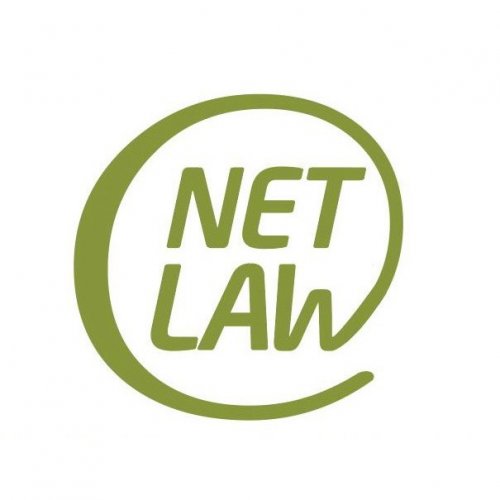Best Fintech Lawyers in Hanoi
Share your needs with us, get contacted by law firms.
Free. Takes 2 min.
List of the best lawyers in Hanoi, Vietnam
About Fintech Law in Hanoi, Vietnam
Fintech, short for financial technology, refers to the use of technology to provide financial services. In recent years, Fintech has gained significant momentum in Hanoi, Vietnam. The government of Vietnam has recognized the importance of Fintech and has taken steps to support its development. Fintech companies in Hanoi offer a wide range of services, including mobile banking, digital payments, peer-to-peer lending, and crowdfunding.
Why You May Need a Lawyer
While Fintech offers numerous benefits, there are legal complexities that individuals and businesses in Hanoi, Vietnam need to navigate. Here are some situations where hiring a lawyer specializing in Fintech can be valuable:
- Applying for licenses and approvals from regulatory authorities
- Drafting and negotiating contracts with partners or clients
- Ensuring compliance with local laws and regulations
- Protecting intellectual property rights
- Resolving disputes, such as breach of contract or regulatory issues
Local Laws Overview
When operating in the Fintech sector in Hanoi, Vietnam, it is essential to be aware of the following key aspects of local laws:
- Regulatory Framework: The State Bank of Vietnam (SBV) is the primary regulatory authority overseeing Fintech activities. It issues licenses and regulations for various Fintech services.
- Consumer Protection: Fintech companies must comply with consumer protection laws, including data privacy and security regulations.
- Anti-Money Laundering (AML) and Counter Financing of Terrorism (CFT): Fintech companies are obligated to implement robust AML and CFT measures to prevent money laundering and terrorist financing.
- Cross-Border Transactions: Fintech businesses engaging in cross-border transactions must comply with foreign exchange regulations and international trade laws.
Frequently Asked Questions
1. Can foreign individuals or companies operate Fintech businesses in Hanoi?
Yes, foreign individuals or companies can operate Fintech businesses in Hanoi. However, they must adhere to relevant laws and obtain necessary licenses and approvals.
2. What licenses do Fintech companies need to operate legally in Hanoi?
The licenses required for Fintech companies depend on the specific services they offer. It is advisable to consult with a lawyer to determine the appropriate licenses for your business.
3. How does the government of Vietnam regulate Fintech activities?
The State Bank of Vietnam (SBV) regulates Fintech activities in Vietnam. It issues regulations, licenses, and guidelines to ensure the stability and security of the financial system.
4. Are Fintech companies in Hanoi required to comply with data privacy laws?
Yes, Fintech companies in Hanoi must comply with data privacy laws. They are required to protect the personal information of their customers and implement robust data security measures.
5. What are the penalties for non-compliance with Fintech regulations?
The penalties for non-compliance with Fintech regulations vary depending on the specific violation. They can include fines, license revocation, and potential legal consequences.
Additional Resources
Here are some additional resources that can be helpful for individuals seeking legal advice in Fintech:
- State Bank of Vietnam (SBV): The official website of SBV provides information on Fintech regulations and guidelines.
- Vietnam Fintech Association: A non-profit organization supporting the development of Fintech in Vietnam. They offer resources and networking opportunities.
- Vietnamese Ministry of Justice: The ministry's website provides access to legal documents and information relevant to Fintech.
Next Steps
If you require legal assistance in the field of Fintech in Hanoi, Vietnam, here are the recommended next steps:
- Research and shortlist lawyers or law firms specializing in Fintech in Hanoi.
- Contact the selected lawyers or firms to discuss your specific needs and schedule a consultation.
- Prepare relevant documents and information to share with the lawyer during the consultation.
- During the consultation, discuss your situation, legal concerns, and any questions you may have.
- Based on the consultation, evaluate the lawyer's expertise, experience, and fees to make an informed decision.
- If necessary, engage the chosen lawyer to proceed with legal representation and guidance in Fintech matters.
Lawzana helps you find the best lawyers and law firms in Hanoi through a curated and pre-screened list of qualified legal professionals. Our platform offers rankings and detailed profiles of attorneys and law firms, allowing you to compare based on practice areas, including Fintech, experience, and client feedback.
Each profile includes a description of the firm's areas of practice, client reviews, team members and partners, year of establishment, spoken languages, office locations, contact information, social media presence, and any published articles or resources. Most firms on our platform speak English and are experienced in both local and international legal matters.
Get a quote from top-rated law firms in Hanoi, Vietnam — quickly, securely, and without unnecessary hassle.
Disclaimer:
The information provided on this page is for general informational purposes only and does not constitute legal advice. While we strive to ensure the accuracy and relevance of the content, legal information may change over time, and interpretations of the law can vary. You should always consult with a qualified legal professional for advice specific to your situation.
We disclaim all liability for actions taken or not taken based on the content of this page. If you believe any information is incorrect or outdated, please contact us, and we will review and update it where appropriate.














